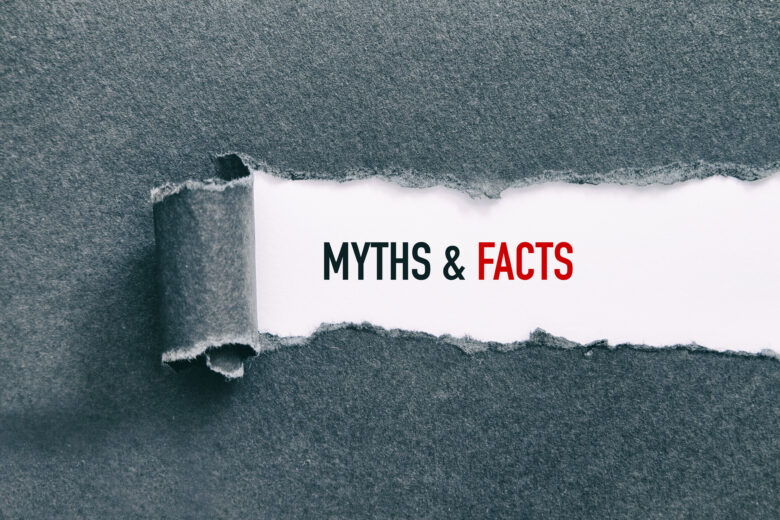When it comes to health insurance, misunderstandings often prevent people from making informed choices about their care. Anyone purchasing insurance for the first time or considering changing their current policy should understand the truth behind these myths. The purpose of this article is to debunk some of the most common myths about health insurance and provide you with the facts so you can make a better decision.
Myth 1: Young and healthy people don’t need health insurance
Although young, healthy people may not need medical care as often, having health insurance is important to protect against sudden accidents or health problems. Medical emergencies can happen to anyone of any age and the costs of emergency care or treatment can be very high. When sudden medical needs arise, health insurance acts as a safety net, ensuring there is enough money to cover costs without causing financial stress.
Myth 2: Health insurance covers everything from day one
The fact is that most health insurance policies have waiting periods for certain conditions and may not provide coverage for conditions that existed before the policy started. Depending on the policy conditions, the waiting period can vary from several months to a year. It’s important that you read and understand the fine print of your policy, such as what it does and does not cover, and when certain payments begin.
Myth 3: The cheaper plan is always better
While it may be tempting to choose the cheapest plan, keep in mind that these plans often have higher deductibles, more copays, and less coverage. This means that even if your premiums are cheaper, you may have to pay more out of pocket for medical costs. To ensure that it meets your healthcare needs without costing more than your plan, it is important to strike a balance between the cost of the premium and the amount of coverage.
Myth 4: I don’t have to worry because my employer will cover me
Yes, it’s helpful to have health insurance through your job, but it’s also important to know exactly what it covers. Some workplace plans may not cover all the care you need, or may only cover certain types of care. Additionally, you may lose your coverage if you quit your job. It is important to understand the details of your employer’s insurance plan. In some cases, you may need to take out additional private insurance to cover gaps.
Myth 5: They only relate to physical health problems
In today’s world, health insurance policies are increasingly recognizing the importance of mental health services and covering them just like physical illnesses. This includes therapy, counseling, and sometimes medication to treat mental health problems. But mental health benefits can vary significantly from plan to plan, so it’s important to make sure you understand what your policy covers.
Myth 6: Insurance claims are always difficult to get paid
Filing an insurance claim can involve some paperwork, but many insurance companies make the process easier by offering online tools and customer service. Knowing how to claim your coverage can make the entire process easier. Many companies also have HR offices that can help, and hospitals often employ people who can help patients with insurance claims.
Myth 7: Health insurance only makes sense if you visit the doctor regularly
Health insurance is not only intended for people who have to visit the doctor regularly. To keep people healthy, it also offers low-cost or free services such as vaccinations, annual checkups, and testing. These services are necessary to stay healthy and can prevent you from developing more serious health problems in the future. Having health insurance also gives you peace of mind knowing that you are financially covered if you suddenly develop a medical problem.
Myth 8: All health insurance is the same
There are many different health insurance policies, each with different coverage, network sizes, and premium costs. Plans can cover very different things and cost very differently depending on whether they are HMOs, PPOs, or other types. When choosing insurance, it is important to carefully compare plans and consider what type of health care you need.
Conclusion
If you’re wondering how to find the right plan and the importance of getting insurance, it’s important to dispel these health insurance myths. Knowing the facts can help you plan for your and your family’s health needs while avoiding additional financial stress. Whether you’re new to health insurance or want to change your current plan, taking the time to understand your options can benefit your health and finances.
FAQs
1. What does health insurance entail?
A type of insurance called health insurance pays the medical and surgical costs for the insured person. The health insurance can pay the healthcare provider directly or reimburse the insured costs incurred due to illness or injury.
2. Why should I take out health insurance?
Health insurance is important because it helps pay for or cover the costs of medical conditions and treatments that can be very expensive. It ensures that you get the best medical care without having to worry about money.
3. How do you choose the best health insurance?
To find the best health insurance plan, compare based on factors such as premiums, deductibles, covered treatments, out-of-pocket maximums, and covered hospitals and doctors. Consider your healthcare needs, your budget, and whether you need coverage for dependents.
4. Can I keep my health insurer on my new subscription?
If your doctor is in your new health plan’s network, then yes. You can choose any doctor with certain plans, but only within a specific doctor network. If you want to keep your current doctor, check before choosing a plan.
5. What does health insurance do for you?
Health insurance typically pays for doctor visits, hospitalizations, preventive care, and medications, but they can cover many different things. Check each plan for more information about what is and is not covered, as well as any limitations or exclusions.
6. Does health insurance cover pre-existing problems?
The insurance policy and laws in your nation are what determine this. Laws in many places make it illegal for health insurers to deny coverage to people who already have health problems. But there may still be a wait before the broadcast starts.


